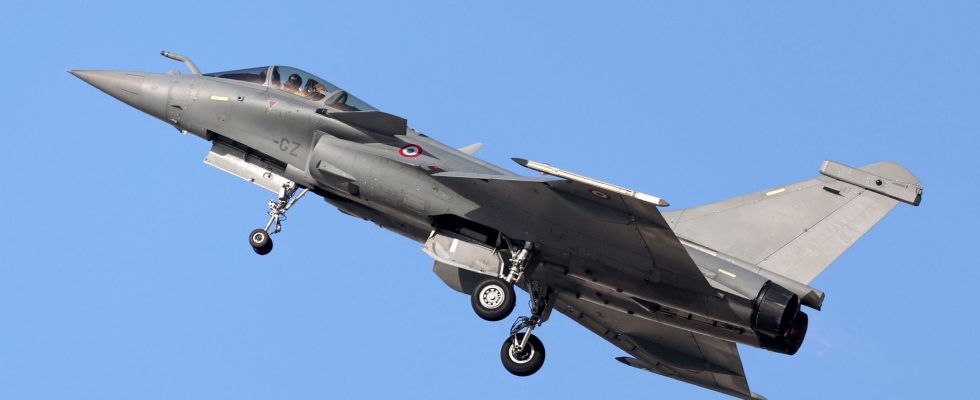In accordance with ancient tradition, under the Peloponnese sun, the Olympic flame will be lit on April 16, before heading to Athens. The start of his long journey to Marseille, then Paris. At the forefront of this ceremonial, the elite of French representation, ministers included, will flock to Olympia and the port of Piraeus. The atmosphere looks even more joyful as another flame is rekindled in Greece, that of economic recovery.
After years of efforts to consolidate its finances and defend its place in Europe, the country is growing much faster than that of the euro zone. Public debt is falling. The unemployment rate too. And the investors are coming back. Since his appointment as Prime Minister in 2019, Kyriákos Mitsotákis, a former French-speaking financier, has worked to restore the image of the Hellenic state. In support, a “Greece 2.0” plan broken down into 108 investments and 68 reforms. “Developed with renowned economists, this program allowed it to obtain 36 billion euros from the European Union, as part of the post-Covid recovery plan. It was therefore deemed credible,” insists Laurent Thuillier, the president of the Franco-Greek Chamber of Commerce. A windfall which is added to the 90 billion in European structural funds.
“An extraordinary turnaround”
However, if the French willingly travel to sunbathe in Crete or marry in Santorini – 1.8 million tourists in total in 2022, out of the 30 million welcomed – they are more timid when it comes to business. There are only 165 French subsidiaries in Greece, including those of Alstom, EDF and Bouygues. Or Vinci Concessions. Its general director, Nicolas Notebaert, is pleased that the company has held on, despite two motorway concession contracts concluded… in 2008. The year of the global financial explosion. And two years before the European sovereign debt crisis. “By relying on our concession model, we were able to fight to find financing solutions, which made it possible to launch modernization and security work and start operations. Between 2013 and 2017, our sites were almost the only ones in Greece, he remembers. Today we hold these contracts in a country that is doing better, we were right to take risks and to believe in Greece, whose government is a reliable partner .” A symbol: on its way to Athens, the Olympic flame will cross the Rion-Antirion bridge at the end of April, the structure which connects the Peloponnese to the north of Greece, delivered by Vinci a few months before the 2004 Olympic Games.
The fact remains that “there are not enough French companies interested in the Hellenic market”, deplores Laurent Thuillier, also deputy general director of Groupama. “The turnaround in the situation there is extraordinary, they are not taking enough advantage of it,” says the chairman of the board of directors of L’Oréal, Jean-Paul Agon. France is only the 9th investor in Greece. Yet , relations between our two countries are excellent, the Greeks consider France as a privileged partner.
He himself can testify to this closeness. When he was only 24 years old and barely three years of experience in the group, Jean-Paul Agon was entrusted with management of L’Oréal’s consumer products division in Greece. He served there from 1980 to 1985. Four decades later, he still speaks fluently in Greek and spends his summers in his house, “on an island”. And still monitors sales closely. “It is one of the best L’Oréal subsidiaries in terms of market share. Last year, it achieved 220 million euros in turnover, an increase of 19% compared to 2022. “It is, moreover, very profitable,” he says.
While it is hard to imagine French banks setting out to attack the Acropolis again, after the rout of the 2010s which forced them to hastily pack up, there is no shortage of opportunities elsewhere. In renewable energies, booming. In the transports. Or even in the merchant navy. Laurent Thuillier created a maritime committee in the Chamber so that the two worlds meet: “The weight of Greek shipowners is major in the global transport of goods and our companies have the skills to support the decarbonization of boats: new modes of propulsion, new fuels, etc.
Gusts and frigates
For the moment, it is in defense that France plays a trump card, geostrategy requires. “On the south-eastern border of Europe, Greece is an outlet for the Suez Canal and the Black Sea, very exposed to tensions linked to the war in Ukraine, the conflict in the Middle East, the flow of migrants…”, summarizes a leader in the sector. Paris established a strategic partnership with Athens in September 2021, followed by orders for Rafale from Dassault Aviation and frigates from Naval Group. Contracts which will benefit another French company, the Thales group, present in the country for half a century, but also local suppliers – Athens’ request in this regard is pressing.
Thales plans to continue its developments in defense and air traffic control, but also in digital technology. Renowned for its bureaucracy, “the country is rapidly transforming on this point”, assures Patrick Defranoux, dual role as boss of Thales Hellas and president of France’s foreign trade advisors in Greece. Some welcome the work of the previous Minister of Digital Governance, Kyriákos Pierrakákis, who automated administrative procedures from the start of confinement and switched tax declarations online.
Beyond the public sphere, “what is happening in the technology sector in Greece is impressive,” enthuses Guy Krief, founder of two young AI startups and president of French Tech Athens, created last year “Several unicorns have emerged. Meta and Microsoft have bought local start-ups, Amazon and Google have invested. Greece trains very good engineers, the cost of which remains competitive for American or Western European companies.” Some French tech specialists are also starting to test the waters. Better not to delay: the high demand for coders is already driving up salaries.
.
